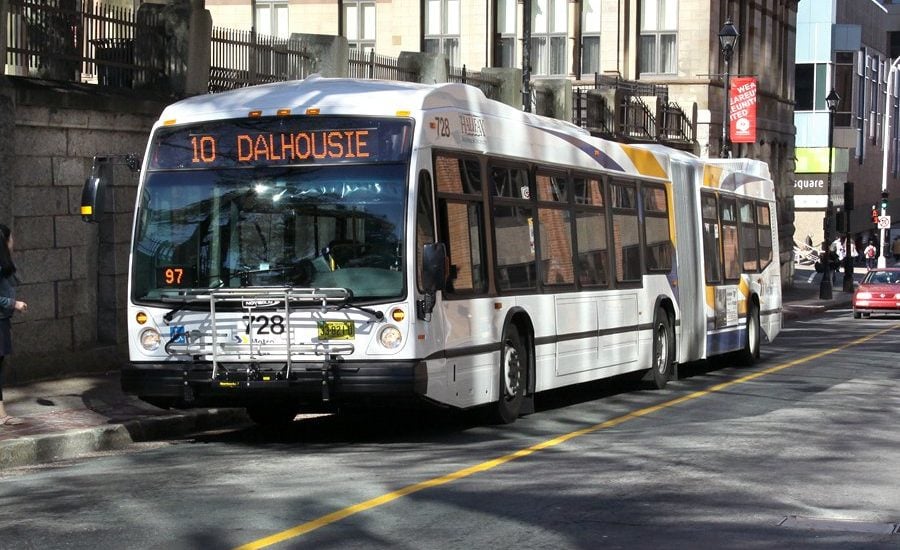KJIPUKTUK (Halifax) – Well intentioned, and no doubt a good thing for many of Halifax’s most marginalized people, nonetheless the free bus passes for people on social assistance are raising several awkward questions.

Some of these questions have to do with the way the free bus pass is being implemented, others have to do with fairness to poor people elsewhere in the province.
First off, Halifax Council deserves praise for their initiative. Councillors know how hard it is to make ends meet on social assistance, and they want to help. That it is cost-neutral for the city in the most pessimistic scenarios, and may potentially earn the city $4.2 million annually is icing on the cake.
It’s Community Services, the other party in this agreement, that has some explaining to do.
Roughly 17,000 social assistance recipients who live in Halifax will get a free bus pass, but thousands will lose a subsidy of up to $78 per month to buy their own bus pass or bus tickets. Typically such subsidies are granted for medical reasons.
It’s easy to shrug this off as a natural consequence of the new program, but for some that money meant just a bit more freedom, a few more groceries rather than bus tickets during a particularly rough month financially. In some cases losing that money is like absorbing a 13% pay cut on an already totally inadequate budget.
“You can argue that bus pass money is for bus passes. But it is a fact of life that people on income assistance have been using their bus pass money to pay for things like rent, groceries, power and phone bills, and other necessities. You do what you can to survive,” wrote Kendall Worth in an earlier story on the issue.
Well, that little bit of agency that people on income assistance had, that ability to make their own decisions about what to do with their money, now will be removed. Food stamps, anybody?
Another question is around the geographic criteria to determine who gets a bus pass. You have to live within 500 meters of a bus route to qualify, which seems unnecessarily restrictive.
Each morning, for many years before I retired, I would walk to my bus stop in Upper Sackville, some 2.3 kilometers away. Not just me, lots of people would do that. Poor people, mostly.
But no free bus pass for anybody who lives further than say a 10 minutes walk from a bus stop.
That one is easy to fix though. Much harder to justify is how the free bus pass program here in Halifax creates a two-tiered welfare system, disadvantaging people on social assistance elsewhere in the province.
No free bus pass for the folks in Sydney, in the Valley, or anywhere public transportation exists, no matter how elementary.
No easier access to transportation supports for people who live in rural Nova Scotia either, no matter whether there is public transportation or not. Poor people in rural Nova Scotia will continue to jump through bureaucratic hoops just to get some gas money so a neighbour can drive them to their doctor’s appointment.
And no real plans to fix that.
“Once the HRM bus pass pilot is implemented, the department will begin exploring opportunities to expand similar pilots to other communities that have a local transit systems,” Community Services spokesperson Bruce Nunn told the Nova Scotia Advocate in early April.
I have worked for government long enough to know what a statement like that really means.
It means, don’t hold your breath. It’s hard to believe that such a two-tiered system would be deemed politically acceptable if the people affected weren’t poor.
Just to state the obvious: none of these questions would be an issue if people on social assistance received an adequate allowance, enough to allow them to live their lives in dignity and make their own decisions.
And some of these issues could have been prevented if Community Services had consulted the people most affected by the change.
Sigh.
Transportation reporter Erica Butler wrote a great story on this topic for the Halifax Examiner, now no longer behind its paywall.
If you can, please support the Nova Scotia Advocate so that it can continue to cover issues such as poverty, racism, exclusion, workers’ rights and the environment in Nova Scotia. A paywall is not an option, since it would exclude many readers who don’t have any disposable income at all. We rely entirely on one-time donations and a tiny but mighty group of dedicated monthly sustainers.




I keep seeing articles about these free buspasses but have yet to hear anything from social assistance. Are we actually going to receive them?
A very serious issue completely ignored by all parties involved: how is someone who can’t walk supposed to pay for a taxi when the Access-A-Bus is not available or suitable for a particular outing? The $40 that I was receiving for transportation will be cut from my cheque and any cabs I have to take will be paid for with money that I need for food. I cannot pay for a taxi with a buss pass. I am losing $480 a year in income so my GST amount with go down too.
UPDATE: I will be allowed to keep $20 of my transportation allowance because that is for mobility issues and was given to me regardless of how many medically essential outings my doctor stated I have in the special needs letter. The $20 that will be taken off my cheque was for purchasing 10 bus tickets for those five medical outings per month. However, $20 is only enough for one cab ride, not even a round trip anywhere so nothing is solved by getting a free bus pass for those who need to take taxis when the Access-A-Bus is unavailable.